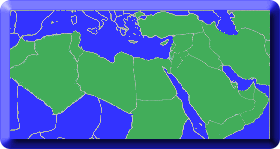
Topics in Middle Eastern and North African Economies
Document Type
Article
Publication Date
5-1-2018
Journal Title
Topics in Middle Eastern and North African Economies
Volume
20
Issue
1
Publisher
Middle East Economic Association and Loyola University Chicago
Abstract
The relationship between the concept of energy efficiency and economic performance is a continuing debate and there is no consensus on it. The main motivation behind this paper is based on a trade-off that exists between energy efficiency and economic growth. Motivated by this trade-off, this paper investigates the long-run equilibrium relationships and causal relationships between energy consumption, economic performance (GDP per capita) and energy intensity in (G20) Countries. Panel data variables over the periods from 1992 to 2012 are employed in empirical tests. Panel cointegration tests suggest that these three variables tend to move together in the long-run. In addition, Panel Granger causality tests indicate that there is a unidirectional causality running from energy intensity to economic performance but not vice versa. Motivated by the panel granger causality findings, we estimated the energy intensity model using the fixed and the random effect model and evaluated the relationship between energy intensity, economic growth and energy consumption of (G20) countries.
ISSN
2334-282X
Recommended Citation
METİN ÖZCAN, Kivılcim and UÇKUN ÖZKAN, Ayşegül, "The Relationship between Energy Efficiency and Economic Performance in G20 Countries". Topics in Middle Eastern and North African Economies, electronic journal, 20, 1, Middle East Economic Association and Loyola University Chicago, 2018, http://www.luc.edu/orgs/meea/
Creative Commons License

This work is licensed under a Creative Commons Attribution-Noncommercial-No Derivative Works 3.0 License.
Copyright Statement
© 2018 The Authors



Comments
Presentation of the articles in the Topics in Middle Eastern and North African Economies was made possible by a limited license granted to Loyola University Chicago and Middle East Economics Association from the authors who have retained all copyrights in the articles.